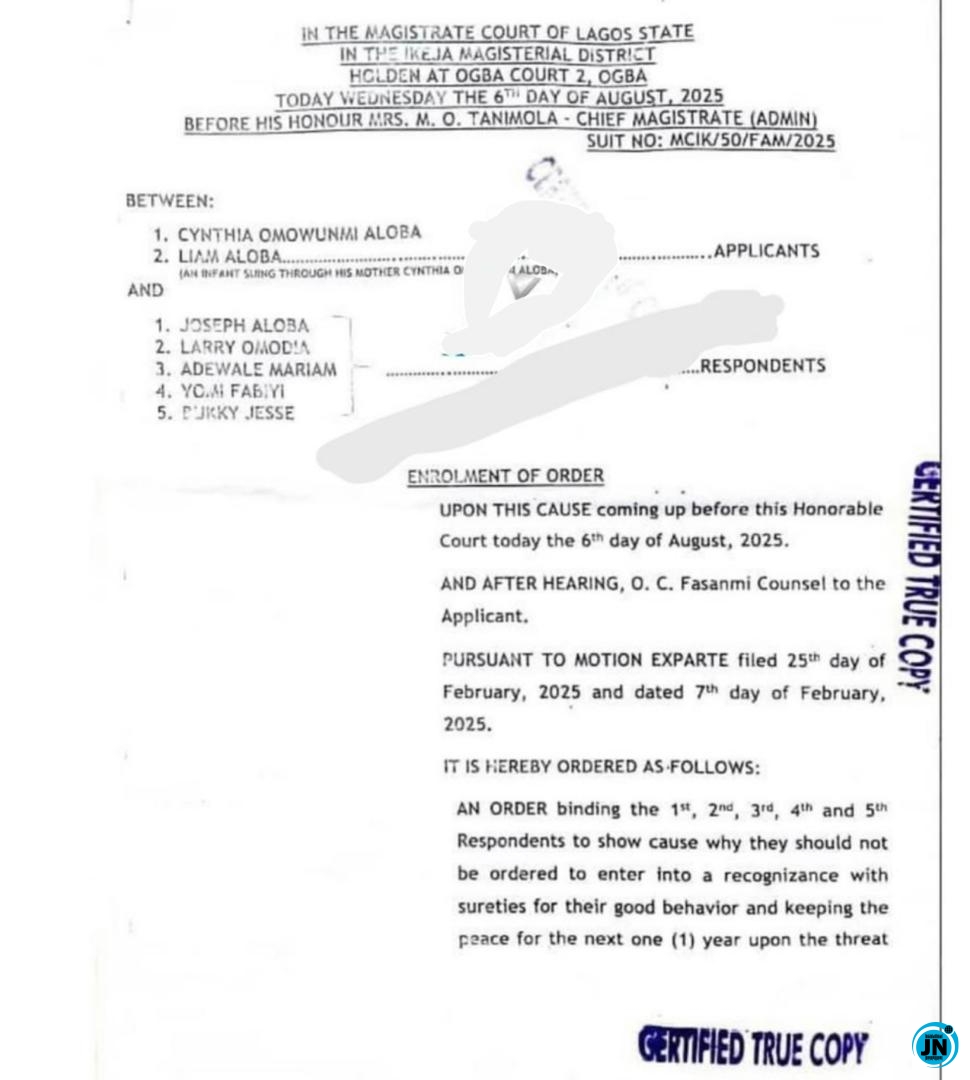A Magistrate Court sitting in Ikeja, Lagos State, has issued a restraining order barring Baba Mohbad, Bukky Jesse, Yomi Fabiyi, Larry Omodia, and Adewale Mariam from making any public comments or inciting actions against late Mohbad’s wife, Omowunmi, and their child, Liam. This legal directive specifically prohibits the mentioned individuals from posting, publishing, or verbally communicating any statements that could be considered harmful, threatening, or defamatory toward the family.
The restraining order extends to all forms of media, including social media platforms, interviews, television appearances, and other public forums. The court’s decision aims to ensure that Omowunmi and Liam are shielded from harassment, bullying, or any form of public scrutiny arising from ongoing disputes and controversies involving the named individuals. The order is set to be in effect for one year, giving the family a period of legal protection from further negative publicity or provocation.
This ruling follows heightened public attention and numerous online disputes involving Baba Mohbad, Yomi Fabiyi, and others, which have often included controversial statements and personal attacks. The court emphasized that the primary purpose of the restraining order is to protect the well-being, safety, and mental health of Wunmi and Liam while maintaining public order and preventing escalation of conflicts. Legal observers note that such measures reflect the judiciary’s growing role in mitigating online harassment and protecting vulnerable family members in the digital age.

By issuing this restraining order, the court signals its commitment to upholding individual rights and the principle that personal disputes should not spill over into harmful public campaigns. The decision also seeks to curb the spread of misinformation and prevent any potential manipulation of public sentiment against the family. It underscores the responsibility of public figures and individuals with influence to exercise restraint in their public communications, particularly when such communications could lead to psychological or emotional harm.
The news of the restraining order has generated significant discussion on social media, with many users expressing support for the court’s protective measures. Advocates for victims’ rights have praised the ruling, highlighting its importance in safeguarding children and spouses from harassment. Conversely, some commentators have raised concerns about the potential limitations such orders may place on freedom of speech, prompting debates about the balance between constitutional rights and personal protection. Legal analysts suggest that while freedom of expression is a fundamental right, it does not extend to speech that incites harm, threats, or harassment, which is precisely what the restraining order aims to prevent.
The court’s decision also serves as a cautionary reminder to other public figures and individuals engaged in contentious disputes that their statements and actions can have legal consequences, especially when they target private citizens or family members. Moving forward, the enforcement of this order will be closely monitored, ensuring compliance and providing legal recourse in case of violations. For Wunmi and Liam, this order represents a vital measure of security and relief amid a highly publicized and sensitive matter.
Overall, the restraining order highlights the judiciary’s proactive stance in addressing public controversies while prioritizing the protection of innocent parties. It reflects a broader societal recognition of the impact of online harassment, the responsibility of public figures, and the need for legal mechanisms to maintain both public order and individual safety.[/p>